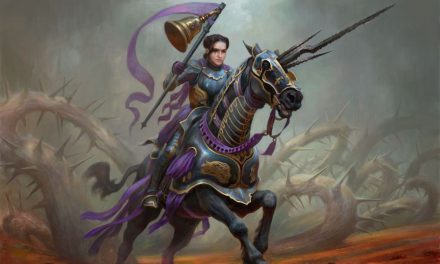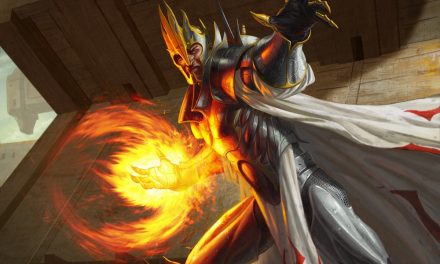The Rogue class’s gifts for sneaking and infiltrating aren’t limited to thieves and assassins!
For those Rogues who prefer to poke and prod to see what truths lie below the surface, there is the Inquisitive Rogue in D&D 5e.
The Inquisitive has an eye for detail and more than a knack for reading people that they encounter.
So put on your trenchcoat and don your deerstalker cap. Today we’re taking a deep look at the subclass that is sure to call out to Sherlock Holmes fans everywhere with this guide to the Inquisitive Rogue in D&D 5e.
What is the Inquisitive Rogue in D&D 5e?
The Inquisitive Rogue in D&D 5e is based on the Investigator class from previous editions of D&D. It’s one of the more “out of the box” subclasses presented in Xanathar’s Guide to Everything.
These rogues are detectives who use their keen observational skills and reasoning abilities in their craft.
Out of combat, the Inquisitive is great at finding clues, traps, and other such hidden things.
Additionally, they’re great to have around if you find yourself playing a game with lots of intrigue. With their observational abilities, Inquisitive Rogues are great at telling if someone is attempting to lie to them.
In combat, the Inquisitive fights by predicting their enemies’ movements. Quickly finding a flaw in their technique or a weak spot in their armor, the Inquisitive Rogue hits them where it hurts the most.
Role in the Party
The Inquisitive Rogue’s role in the party is primarily based on finding hidden things. They don’t have the damage output of other Rogues, but they greatly excel in out-of-combat situations and objectives.
Because this subclass relies heavily on the Investigation, Insight, and Perception skills, they’re part ferret and part bloodhound.
It’s rare that things will get past them and they will do well in finding almost any secret that the DM has hidden. This is especially true if you take the Observant feat to truly become a type of Sherlock Holmes character!
Puzzles, mysteries, finding traps, intrigue and other such elements are where this subclass really comes alive.
Oh… and speaking of mysteries…
Don’t forget to check out this article about the Candlekeep Mysteries adventure! If you fancy a bit of gumshoe detective action, you won’t want to miss this one!
Inquisitive Rogue Abilities
The inquisitive may not have the combat prowess of other Rogue archetypes like the Assassin or Swashbuckler, but they are very good at what they specialize in.
Just be sure to keep that in mind when playing an Inquisitive Rogue. You may also want to check out our article on Party Composition to get a better idea of where your Inquisitive will fit in with the party!
Ear for Deceit
The Inquisitive gets 3 abilities right off the bat at level 3.
With Ear for Deceit, the Inquisitive gets much better at detecting lies. When you make a Wisdom (Insight) check to tell if a creature is lying, any roll of 7 or lower on the d20 is treated as an 8.
An Inquisitive has to be proficient in Insight to get the most value out of their class features and abilities.
This ability does make it harder to fail an Insight check and already shows the archetype as focusing heavily on more intrigue-based play.
It’s a bit of coin toss if you’ll still be able to reliably outperform a class that already focuses heavily on Wisdom (like a Cleric or Druid), but this ability does let you play catch-up a bit.
The biggest benefit of this ability is how it work with the Insightful Fighting ability. We’ll get to that shortly!
Eye for Detail
The Eye for Detail ability functions like an extra option for the Rogue’s Cunning Action feature.
Starting at 3rd level, you can make a bonus action to make a Wisdom (Perception) check to spot a hidden creature or object. You can also use this to make an Intelligence (Investigation) check to uncover or decipher clues.
This is honestly a pretty solid ability that can really shine in campaigns where you’ll be doing a lot of dungeon crawling.
This ability lets you keep an eye out for threats while you use your action doing something else. This could be interacting with the environment, setting traps, or whatever else the situation calls for.
Typically, finding a hidden creature takes an action. With Eye for Detail, the Inquisitive can call out a hidden creature’s location and have the party’s caster throw a spell like Faerie Fire to prevent a surprise attack!
The Investigation part of this ability can be useful, though that largely depends on the situation. Puzzles can be infuriating, but a solid Investigation check can give you the clues that you need to solve one.
In more of an intrigue/mystery campaign, this ability shines a lot brighter. You’ll be able to quickly look over a room or scene and piece clues together faster than anyone else.
Keep this ability in mind when choosing what skills to put your Roguish Expertise in.
Perception is the most used skill in the game. Why not have expertise in it?
Investigation can be a good candidate for Expertise if the campaign will feature a lot of opportunities to use it.
But putting Expertise in Insight will likely take you a lot farther. This is especially true when considering the next ability that you gain at level 3.
Insightful Fighting
I tend to feel like Insight is one of the most underused skills in all of D&D 5e. By including a class feature that uses the skill in an effective (and stylish) way, this is the Inquisitive Rogue’s standout ability.
With Insightful Fighting, you make a Wisdom (Insight) check against a creature that you can see and that isn’t incapacitated. This is contested by the target’s Charisma (Deception) check as you anticipate their tactics and plan a counter to them.
On a success, you can use your Sneak Attack against the target even if you don’t have advantage on the roll. This lasts for the next minute or until you use the feature on a different creature.
(Note: this doesn’t work if you have disadvantage!)
While Sneak Attack isn’t terribly difficult to land in most situations, this ability helps make sure that you are never without your Sneak Attack damage.
If you don’t have an ally next to you and don’t have somewhere to hide, Insightful Fighting will be your best friend!
Steady Eye
The Inquisitive Rogue’s next ability comes at level 9 and it’s a doozy!
With Steady Eye, if you move no more than half of your speed on your turn, you gain advantage on any Wisdom (Perception) or Intelligence (Investigation) checks you make that turn.
This takes the best part of the Inquisitive archetype up to this point and makes it better. Having advantage on both of these skills is very impressive. Hidden creatures will have virtually no chance of ambushing your party and you can possibly breeze straight through puzzles with a good Investigation.
While this ability has some major effects on your other abilities, there’s not much more to say about it. It makes the bread and butter features of the Inquisitive Rogue that much better!
Unerring Eye
At level 13, the Inquisitive Rogue is remarkably difficult to trick.
As an Action, you sense magic that is meant to deceive your senses within 30 feet of you. This includes illusions, shapechangers who aren’t in their original form, or any other such magical trickery.
While this ability doesn’t let you know what’s being hidden or what something’s true nature is, you can determine that it is a trick.
You can use the Unerring Eye ability a number of times equal to your Wisdom modifier per long rest. Additionally, you can’t use this ability if you have been blinded or deafened.
In most cases, illusions can overcome Perception checks unless you interact with the illusion in some way. You clearly see the thing that the illusion is creating, but you don’t disbelieve it unless you interact with it in some way.
This ability can potentially determine things that even Detect Magic wouldn’t find. Shapechanger creatures aren’t typically able to be noticed by Detect Magic, so the Inquisitive does set themselves apart if you’re trying to track an elusive Doppelganger or Changeling.
Eye for Weakness
The final Inquisitive Rogue ability, Eye for Weakness, comes at level 17.
This ability adds some extra bite to your attacks against a creature that you are using your Insightful Fighting on. By anticipating their tactics, your Sneak Attack damage against the creature increases by 3d6.
While this ability doesn’t crank out the same damage as, say, an Assassin, it is a respectable increase!
This ability shines best in fights that tend to go on a bit longer. While an Assassin can do a boatload of damage at the beginning of combat, the Inquisitive is theoretically dealing an extra 3d6 every round. In a boss fight, for example, this does give the Inquisitive some staying power!
Eye for Weakness is a nice little punctuation for the Inquisitive’s features. It’s a respectable damage increase that doesn’t deviate from the archetype’s primary role or feel too forced.
Connections
With Inquisitive Rogues being that type of classic detective, they can easily be connected into the party/world by the presence of some kind of mystery.
They might have a burning question that joining the party might help them find answers to.
You can find inspiration for these types of characters all throughout a ton of fiction. Sherlock Holmes, Hercule Poirot, and Nancy Drew all immediately come to mind. You might even find inspiration in other characters like Batman or Watchmen’s Rorschach.
However the Inquisitive comes to connect with the party or the world around them, it’s unlikely to be by chance. These characters tend to be very methodical and always have a plan.
Though, admittedly, an Inspector Clouseau type of Inquisitive could certainly provide for some interesting comedic relief!
Is Inquisitive Rogue Good?
As mentioned previously, the Inquisitive Rogue doesn’t get abilities that lend to a strong combatant. However, they do function very well as scouts, lie detectors, and problem-solvers.
No subclass is better equipped to find all of an adventure’s juicy secrets and disarm all of its deadly traps than the Inquisitive.
It might be easy to disregard this archetype because of their lack of emphasis on combat, but I would beg to differ.
The Inquisitive Rogue’s features are incredibly valuable for a party’s survival and this class is a great pick for someone who loves ruining the DM’s plans.
As someone who loves to “100%” everything, I’ve been consistently drawn to this class. The abilities of the Inquisitive to leave no stone unturned mean that it’s unlikely you won’t find everything that a dungeon is hiding.
As with almost any class, you’ll want to consider the party’s composition and the type of adventure that your group is playing. While I would say that the Inquisitive Rogue is a good class, it won’t really get to play as intended in every adventure or group.
With the release of Candlekeep Mysteries, Inquisitives will finally get more of the love that they deserve in campaigns that really let them flex their abilities!
Conclusion – The Inquisitive Rogue in D&D 5e Guide
And that’s our guide to the Inquisitive Rogue in D&D 5e!
The ideas of a Wisdom-based Rogue is definitely an interesting one and it does a lot to reimagine the Rogue’s role in the party.
Of all of the Rogue subclasses, I don’t think I’ve come across one that’s more divisive than this one, to be honest. Those who like it, really love it. Those who don’t, absolutely hate it.
I think it comes down to a mix of the type of campaign being played and what your individual ideas of what a Rogue “should be” are.
What do you think?
Let me know in the comments and don’t forget to sign up for the Tabletop Joab Newsletter to get all of the updates on our newest content!
And don’t forget to check out my Complete Guide to the Rogue in 5e by clicking here!
It’s… elementary…
(C’mon. There had to be at least one Sherlock Holmes reference in here!)









